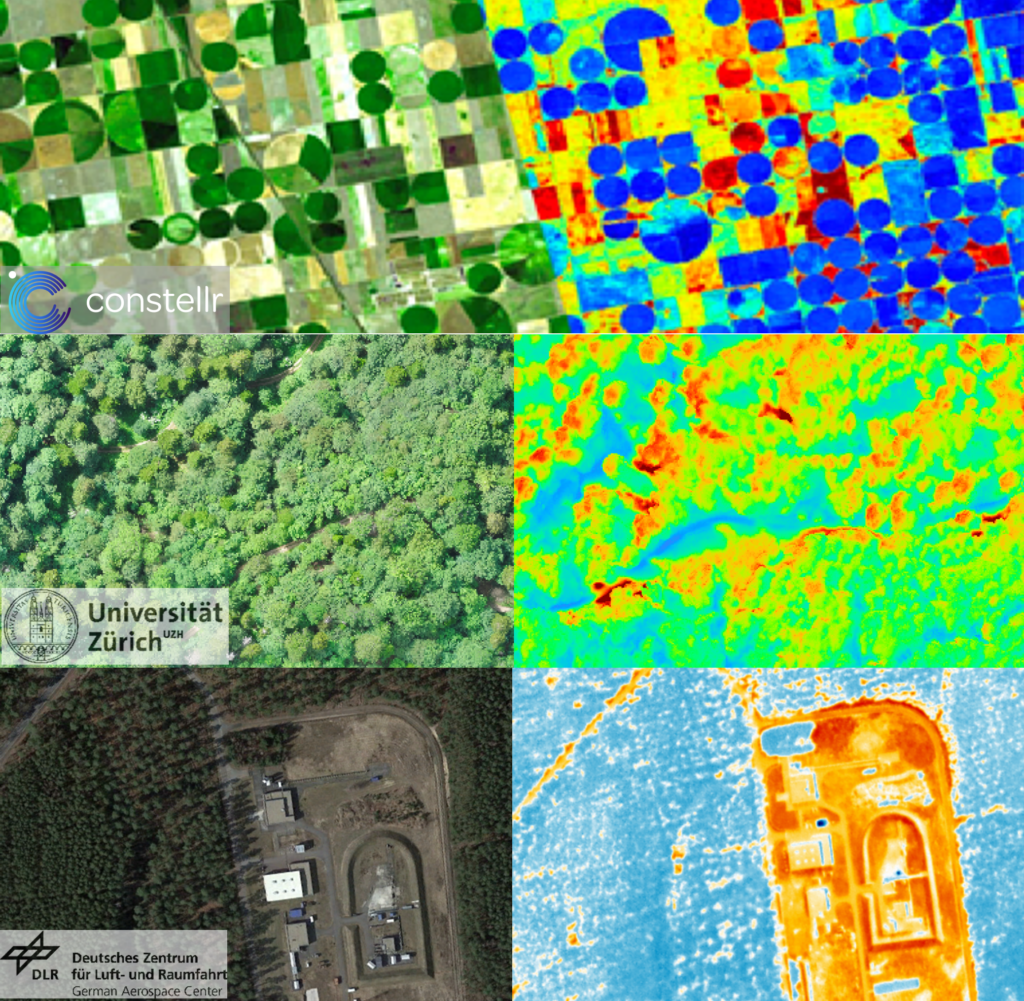In the recent years, thermal remote sensing has developed strongly and new sensors are appearing on an unprecedented pace, while new applications and in-depth studies are supporting this growth.
Thermal InfraRed (TIR) remote sensing allows measuring parameters, such as Surface Temperature (ST) and Emissivity, which play a significant role in Earth systems and processes. These variables are critical for studying the energy and water balances of the Earth surface, and monitoring climate changes, and can be used is a large variety of applications, such as landscape characterisation, analysis, and change; monitoring of vegetation health for agriculture; quantification of energy fluxes and energy balance (on land, as well as in water environments or ice and in the atmosphere); detection and characterisation of thermal anomalies (both natural and man-made); extreme events detection both natural (volcanic eruptions) or man-made (gas flares, burning oil spills, wild fire); and climate applications. Observing these variables across all these domains is important because they affect ecosystems, surface-atmosphere interactions, and quality of human life.
The proposed session is in support of the EARSeL Special Interest Group on Thermal Remote Sensing that was established in 2023 to stimulate new international collaboration in measuring and better understanding ST and Emissivity across all domains of the Earth’s surface including air, land, sea, lakes, and ice.

List of topics
- Methodological advancements in thermal data processing and algorithm development
- Advancements in thermal sensor technology
- Use of hyperspectral TIR data for preparation of upcoming space missions such as TRISHNA, LSTM, SBG and New-Space commercial missions
- Calibration and validation activities related to thermal remote sensing, including hyperspectral airborne or UAV campaigns, laboratory/field experiments or sensor intercomparison
- Fusion and synergistic use of TIR data with other remote sensing technologies (e.g. optical hyperspectral, LiDAR or SAR)
- Application of thermal remote sensing data to understand earth system processes
Organisers
Agnieszka Soszynska, University of Leicester, UK agnieszka.soszynska@le.ac.uk
Jennifer Susan Adams, University of Zurich, Switzerland jennifersusan.adams@uzh.ch
